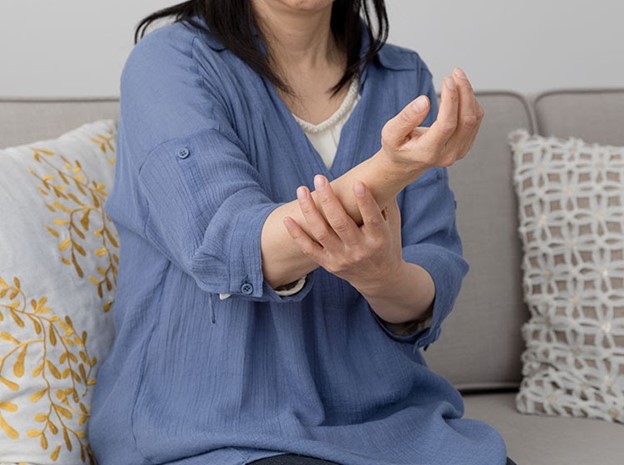Guillain Barre Syndrome is an autoimmune disease affecting the peripheral nervous system. This disorder may lead to weakness or paralysis for a few months or years. Most of the time, it appears after respiratory infections like food poisoning. The symptoms associated with this syndrome can show up a few days or weeks after the infection clears. But it may follow after getting a vaccination, but this is a rare occasion. Explore the symptoms, different causes, and treatments here.
What is Guillain Barre Syndrome
Guillain Barre Syndrome is a rare but serious disease that affects the part of your nervous system outside the brain and spinal cord called the peripheral nervous system. This syndrome attacks myelin sheaths of the peripheral nerves. This damage prevents nerves from sending information to the brain and spinal cord, such as touch sensations. Missing this information leads to a feeling of numbness and ultimately results in the brain’s ability to transmit signals to the spinal cord. Luckily, there are several ways Guillain Barre Syndrome treatment can help you manage symptoms.
Are There Different Kinds of GBS
Acute inflammatory demyelinating polyradiculoneuropathy is the most common kind of GBS. The weakness of this type of syndrome typically begins in the lower half of the body and moves up gradually to affect other areas in your body.
Miller Fisher syndrome is a variant of GBS that makes up about ten percent of cases in the United States. It can affect your eye muscles along with tendon reflexes. With decreased muscle movements, your body has problems with walking and balancing.
Acute motor axonal neuropathy causes weakness in your limbs and occasionally causes difficulty breathing. However, it can cause damage to the nerves in your head.
Some other types of GBS begin slowly and have ongoing symptoms, like chronic inflammatory demyelinating polyneuropathy. This type causes periods of weakness that reoccur over time. Although, in multifocal motor neuropathy, the weakness only affects certain body areas.
What Are the Symptoms of GBS
You can expect symptoms of GBS to appear up to three weeks after a gastrointestinal infection. These symptoms start with numbness and tingling in your feet and hands. In children, it may cause difficulty when walking. However, weakness going beyond your legs can develop. When this happens, you may experience weakness on both sides of your body, difficulty breathing, and paralysis.
Along with muscle weakness and numbness, you might experience:
- Visual disturbances from your weakening eye muscles.
- Trouble with chewing, speaking and swallowing.
- Pain that gets worse at night.
- Difficulty with your coordination.
- Changes in your heart and blood pressure.
- Issues with your digestion and bladder control.
Experiencing any of these symptoms requires urgent medical care.
How To Diagnose GBS
In the early stages of GBS, getting a diagnosis is difficult since it resembles other neurological symptoms. Your doctor will take into consideration symptoms like weakness in your body, how fast and in what order your symptoms appeared. They might also run tests such as a nerve conduction exam, a lumbar puncture or electromyography to rule out other possible scenarios.
Are There Ways To Treat GBS
GBS has no known cure, but treatments are available to help manage your symptoms. One treatment option is immunoglobulin therapy. This treatment involves receiving antibodies intravenously from a donor.
Another plan to treat GBS is plasma exchange. This occurs when you remove the blood and send it through a machine that separates the plasma away from blood cells. That process removes antibiotics that harm healthy cells.
Rehab may help you with the physical symptoms of GBS. These rehabs include physical therapies that help restore your functions and mobility.
These treatments are equally great options to help manage debilitating symptoms. Keep in mind that these treatments help, not cure. There are also many benefits from counseling because GBS affects your mental and emotional well-being.
Even though GBS is rare, there is a possibility of getting it after certain infections. Most of the time, people make a full recovery, but it will take time. Anyone who has symptoms of GBS should seek medical advice to start the treatment as soon as they can.

